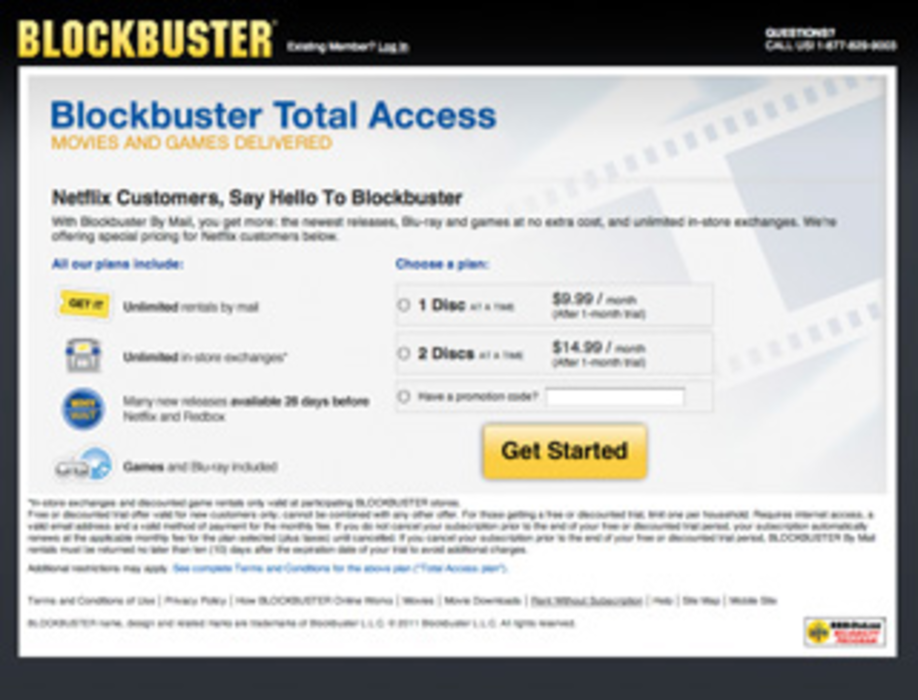When Netflix announced new pricing plans in July, driving thousands of angry customers to complain or leave the service entirely, its competitors smelled blood in the water. Rivals such as Blockbuster and Redbox sought to take advantage of Netflix’s CRM faux pas by reaching out to the company’s disgruntled customers.?
Blockbuster launched a nationwide promotion to compel Netflix customers to switch to the Blockbuster Total Access program. Blockbuster, a subsidiary of Dish Network Corp., offered Netflix customers who signed up for a Total Access plan a free month-long trial for discs sent through the mail. Blockbuster suggested the ?#helloblockbuster Twitter hashtag for disgruntled consumers and promoted its special pricing plans for Netflix defectors on a microsite with a special promotional code. ?
Blockbuster president Michael Kelly said at the time that “we find it shocking that anyone would raise rates as high as 60%.” ?
Soon after Netflix’s botched announcement, kiosk-based rival Redbox said it would roll out videogame rentals to 5,000 more locations across the country. However, Oakbrook Terrace, Ill.-based Redbox also told consumers that it will raise the prices of its DVD rental service by 20%, an average of less than 20 cents per rental. ?
Although Netflix separated its unlimited streaming and DVD services in its new pricing plans, Gary Cohen, Redbox’s SVP of marketing and customer experience, says his company is only focused on physical media options. “DVDs and Blu-ray discs continue to be the most popular ways for consumers to rent movies,” he says. ?
Netflix defended its price changes, which required consumers to choose among an unlimited streaming-only plan for $7.99 per month, or DVD-only plans at $7.99 or $11.99 for one or two rentals at a time, respectively. Consumers could also pick a subscription to both unlimited streaming and one DVD rental at a time for $15.98. “The change in subscription model gave subscribers more flexibility and the lowest price for DVDs ever. The reaction from consumers was based on what was perceived as a price increase,” says Steve Swasey, VP of communications at Netflix. ?
“The announcement came off soun-ding like something from an airline or a bank,” says Adrian Ott, founder and CEO of consultancy Exponential Edge. “The element of surprise is what upset so many customers. Netflix gave away the store to gain subscribers, and then jolted them with a price increase once they stepped inside.” ?
Ott adds that Netflix would have practiced better customer relations had it set expectations that the previous combined DVD and streaming subscription plan for $9.99 per month was a limited-time offer or had tiered the offer. In the best-case scenario, the company would have announced an addition or upgrade to services, rather than simply an increase in prices. ?
“Netflix handled it badly with their public justification, which simply made it seem like they knew they had a customer base that was big enough to be greedy with,” says Paul Greenberg, owner of CRM consultancy ?The 56 Group. ?
Before the consumer uproar over the pricing plan, more companies began to roll out streaming services to compete with Netflix. Hulu offers Hulu Plus premium streaming for $7.99 per month, and Walmart‘s Vudu service distributes high-definition movie and TV shows à la carte. Amazon.com Video On Demand allow purchase or rental of media that can then be accessed on other devices. Both Vudu and Hulu declined to comment.







